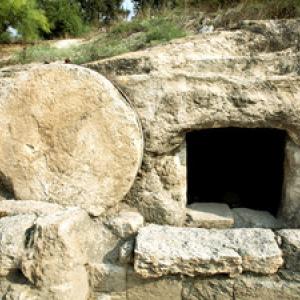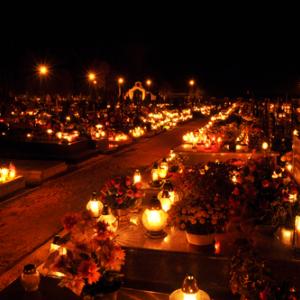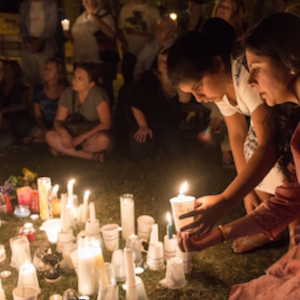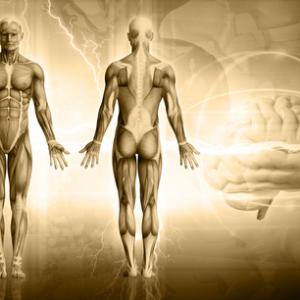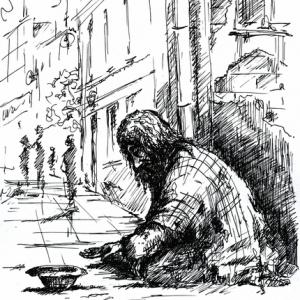Greg Carey, is the Professor of New Testament at Lancaster Theological Seminary, Lancaster, Pa. His most recent book, Sinners: Jesus and His Earliest Followers, pursues the role of transgression in early Christian identity.
Posts By This Author
The Apocalyptic Jesus
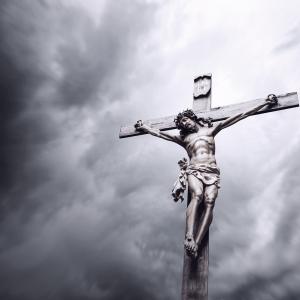
Image via Soloviova Liudmyla/Shutterstock.com
Like most interpreters, I believe that apocalyptic thought shaped Jesus’ vision. When he announced the kingdom of God, he meant it (Luke 4:43; 8:1). Jesus understood his ministry as God’s dramatic intervention into human history, a decisive moment that forced people to accept or reject what God was about. Yes, his ministry was meant to bring peace. But in an apocalyptic perspective, peace ultimately follows a period of intense conflict.
Jesus Doesn't Extend the Boundaries. He Refuses to Recognize Them.

Image via Perfect Lazybones/Shutterstock.com
There is so much arguing over boundaries. Should we welcome refugees from Syria, a nation torn by civil war and terrorism? How should our society respond to others who have immigrated here without government approval? Although immigration from our southern border has declined over the past decade, some public leaders applaud the contributions of undocumented Americans while others spell out the risks they bring. Do we consider immigrants likely contributors or potential criminals? When activists proclaim “Black Lives Matter,” the counter-point “All Lives Matter” looks like an attempt to hush a legitimate complaint about policing and criminal justice. I catch myself needing some of those noise-canceling headphones.
Help End Hunger. It’s Simple.

Image via Fabio Freitas e Silva/Shutterstock
Even on a local scale, problems like poverty and hunger can overwhelm our imaginations. My own city of Lancaster, Pa., is like countless others. Pockets of true poverty cluster in the old city and dot the countryside. Affluent developments surround the city, while hip new housing is popping up in the center of the city. An impressive urban revitalization campaign has transformed the city’s image, making downtown an attractive place to eat, shop, and play.
Recently, however, a study by Franklin and Marshall College has shown that Lancaster’s resurgence has not helped its poorest residents. Just the opposite has occurred. Between 2000 and 2013, per capita income has grown by 20 percent in the city’s center while it has declined in every other section. What looks like progress from the outside contradicts the harsh reality that thousands experience.
It’s a typical scenario, in which outcomes such as life expectancy and high school completion rates vary dramatically, even in adjacent zip codes and school districts. Faced with such stubborn realities, many individuals feel at a loss concerning how to make a difference.
Violence Begets Violence: ISIS and its Origins
Where does the violence end? And how did it begin?
In such a moment, we imagine ISIS as “different” from ourselves, a whole distinct category of the species homo sapiens. We did the same with Nazis back in the day, as if genocide’s engineers had not been the brothers and sisters of our own immigrant citizens, as if they were not the grandparents of the amiable Germans and Poles we befriend today. We forget, by the way, our own history of torturing — often burning alive — our own African American citizens, grandchildren of those this nation had enslaved. Our own president condemned ISIS and its grotesque ways, and he also reminded us that the potential for such violence dwells within every society. Naturally his opponents went nuts: they are nothing like weare, they cried.
But we are like they are, and they are like we are. Violence breaks us down.
The Year of Outrage
Optimism tends to accompany a new year. But we leave 2014 somewhat broken and disappointed. The online magazine Slate has christened 2014 “The Year of Outrage.” I bet the name sticks. Slate’s snappy multi-media calendar links the most outrageous news story for every day of the past year. What was so outrageous, and who found themselves offended?
January 29: “XOJane publishes an essay about a white person seeing a black person in yoga and feeling uncomfortable about it.” (Race provided a major source of outrage in 2014.)
According to Slate: ”Who was outraged: black women, nonracist yoga practitioners.”
November 6: “A mom finds mold in a Capri Sun juice pack.”
“Who was outraged: people who don’t think mold should be in juice.”
Slate pumped up the project with eleven essays on outrage. Topics ranged from “The Life Cycle of Outrage” to the twins “The Year in Liberal Outrage” and “The Year in Conservative Outrage.” I don’t know about you, but I think Slate basically named our collective mood as we enter 2015.
Outrage may emerge from petty things: “An Irish cafe bans loud Americans” (July 22). It seems to me, though, that we live in a society intensely marked by outrage. What is one to say in the face of ISIS and its blood lust? Outrage divides us. Do we find ourselves more inclined to outrage that in Ferguson, Missouri an unarmed black youth died from at least six gun — or do we find it more offensive that crowds would protest the death of a young man who may have attacked a police officer?
I know one thing: my social media feeds provide no help. They stream with the outrage of people I love, people I know, and newsmakers I follow.
Here’s the deal: our outrage grows from our most vulnerable places, our basic fear that things are not as they should be. Something is wrong with our world, and in a fundamental way we don’t know how to fix it. Faced with moral and social disorder, the deep evolutionary structure of our brains prepares us to fight: outrage! We may think we’re angry because we’re right — and someone else is so, so wrong. We’re really angry because we’re disappointed.
The opening verses of John’s Gospel confront us with a combination of things that ordinarily don’t belong together. Readers universally appreciate how this prologue applies to Jesus some of the Bible’s most high-flying, most spiritual language (1:1-18). But hints of discord also haunt this most exalted passage.
All Saints’ Day: Facing Death
“Administration officials have repeatedly assured Americans that they were prepared for Ebola. Less than two weeks ago here at the White House, they insisted they knew how to stop this virus in its tracks. But so far, the virus appears to be outrunning the government. “
So began Scott Horsley’s report from the White House, one of three separate stories NPR’s news showAll Things Considered devoted to Ebola on Wednesday, October 16. According to yet another report, a recent Harvard School of Public Health survey finds that 40 percent of Americans feel “at risk” of contracting the disease.
We have Ebola on the brain.
Several of my friends expressed alarm when the first Ebola patient flew to the United States for treatment. Now we find that not one but two Dallas nurses have contracted Ebola, likely because their hospital did not adopt proper Ebola protocols. Americans know that their medical system is far better equipped to prevent an Ebola outbreak than are those in West Africa. We know our system is better prepared to offer effective treatment. But the appearance of multiple cases, one involving a nurse who took a commercial flight while possibly contagious, has people concerned. When a key public health expert says, “It’s a learning process, and . . . our confidence in the hospitals was ill-founded,” the rest of us might get a little nervous.
Seeing and Believing at Easter Time
Easter Sunday marks the holiest, most exalted moment of the Christian year. In Easter services all over the world, trumpets and organs blast. Flowers transform churches with their brightness. Worship leaders boldly proclaim: “Christ is risen!” Congregations echo back: “Christ is risen indeed!” The cycle of celebration and repetition begins as it should — a festive proclamation of good news. In Christ God has overcome the powers of sin and death, freeing us to live with hope and promising us life. Not just life after death, but full life, divinely inspired life — life in the here and now.
Christ is risen! Christ is risen indeed!
Even in these festive moments, many people express insecurity regarding the quality of their own believing.
What Did Eve Want?
Is Eve all about sex? Or might she want something else? Our popular imagination turns Eve into a receptacle for one set of our fantasies. Our fixation on Eve’s sexuality causes us to overlook the story’s major themes and what they might mean for our common life together. Indeed, biblical scholar Ken Stone shows that Genesis 2-3 has a lot more to say about food than it does about sex. Even if becoming “one flesh” is about sex, and maybe it’s not, there’s all kinds of references in the passage about what the first humans may or may not eat.
The story tells us directly what Eve wants. She doesn’t want to tempt Adam. And she doesn’t want a snake curling suggestively around her body. Eve wants wisdom.
And she gains wisdom.
Let’s review some of the overlooked details in this story.
On Scripture: Halloween and All the Saints
I probably shouldn’t admit how much I like Halloween. I’m too much of a slug to deck out my house, I rarely wear a costume, and I haven’t been to a wild party in years, but I love the excitement children bring to the whole process. Then again, there’s the classic It’s the Great Pumpkin, Charlie Brown – what’s better than that? I’m pretty much a sucker for Halloween.
I was already an adult when I learned how we came upon Halloween. All Hallows’ Eve marks the night before All Hallows’ Day, or All Saints’ Day, when Christians celebrate those who have preceded us in the faith. Some churches honor great heroes of the faith, the “saints” of our past. Other churches emphasize that all believers are “saints,” not because we are especially virtuous but because we are made holy simply by God’s will. In some churches, the label “saints” joins us not only to our deceased forebears but also to our living sisters and brothers scattered around the world. (Still other churches simply don’t observe the day at all.)
On Scripture: The Social Shape of Divine Generosity
It all sounds so… demanding. Sell your possessions and give to the poor. “Be dressed for action." Imagine yourselves as slaves who remain ready for their master’s return — not knowing when it might come.
Luke’s Gospel is big on demanding. In Luke 9:57-62, Jesus encounters three would-be disciples. And each receives a warning that would vanquish enthusiasm like an ice-cold shower.
On Scripture: Repairing Our Grief
My Uncle Norman fought in Europe during World War II. An artillery observer, he didn’t return with many “heroic” stories to tell. When I was little, he would roll out some souvenirs from the war, and I’d be impressed: German military dress knives and lovely table linens. I don’t recall all of the stories or how these things became his, but I’m pleased to report the table linens were a gift. His war experience was hardly glamorous.
Uncle Norman did tell of one harrowing experience. He and his partner were identified by German artillery, and they experienced exactly the treatment they dished out. Out in front of their own unit, as they always were, they heard a shot go just overhead and explode behind them. Then one fell just short. Placing a shell a bit to the left and one to the right, the Germans had them zeroed in. Uncle Norman’s friend panicked, frozen, stuck to the ground. And in the last minute – as he remembered it – my uncle tackled his partner and carried him to safety. Pretty dramatic stuff for a kid to hear.
When Uncle Norman was much older, he came close to death after gall bladder surgery. That night he experienced profound nightmares, the Lady Macbeth experience of bloody hands he could not cleanse. The next day, he told me a very different story than the ones I’d heard before. I believe I was the first to hear of the time when he called in the coordinates for an intersection across which a significant body of Germans was crossing. For 30 minutes, he said, he watched the effects of the barrage he had targeted. And now, 40 years later, his hands wouldn’t come clean.
On Scripture: Why Our Bodies Matter
Immediately following the election of Cardinal Jorge Mario Bergoglio as Pope came the predictable speculation. From the United States and other wealthy nations, folks wondered what the new Pope would say about issues related to gender and human sexuality. What about birth control, homosexuality, and women’s leadership in the church? Did the new Pope really support civil unions for gay and lesbian couples in Argentina, as some reported? Others, including many from Latin America, Africa, and parts of Asia responded to Pope Francis’ commitment to a simple lifestyle and his commitment to economic justice. While some fretted about his relationship with the Argentinian military dictatorship during the 1970s and 1980s, most have been impressed with his social witness. In one of his first public acts, Pope Francis entered a youth detention center in Rome and washed the feet of young offenders.
Lots of observers might wonder, “Why is the church expending so much energy on controversial social issues? Shouldn’t the church focus on spiritual matters rather than concerns of the flesh? Why does the church need to meddle in matters that lie beyond its purview?”
The Easter stories offer a direct answer. Whether we agree with the Pope or not, Christians care about human bodies. The resurrection story implies that bodies matter. Jesus’ resurrection is not merely a spiritual thing – the apparition of his ghost, or his ongoing spiritual influence. The Gospels all insist that the resurrection includes Jesus’ body.
On Scripture: The Value of Chump Change
Is poverty what it used to be? Or has poverty grown so shameful that we dare not speak its name? So determined are we keep poverty out of view, we erase the presence of the poor from Jesus’ teachings. The widow we encounter in Mark 12:38-44 provides a case study in poverty and oppression. Unable to confront poverty, we have turned her into something safer – an example of generosity.
The election has just passed. As I’m writing this, I don’t know who will win. I do know this: neither presidential candidate could work up the courage to address poverty as a serious issue, at least not directly. If Democrats typically look out for the poor, you wouldn’t know it from President Obama; Mitt Romney mentioned the poor more often than did the president, if only to remind voters that the economy is struggling. For his part, Obama avoided the “p-word,” even if he discussed policies that could remedy the poverty problem. Some of our political leaders do include the poor in their policy work, but they face an uphill struggle.
In Defense of Scholars
I AM GRATEFUL for Ann Monroe's reflection on Jack Miles' book, God: A Biography ("Honest to God," May-June 1998).



